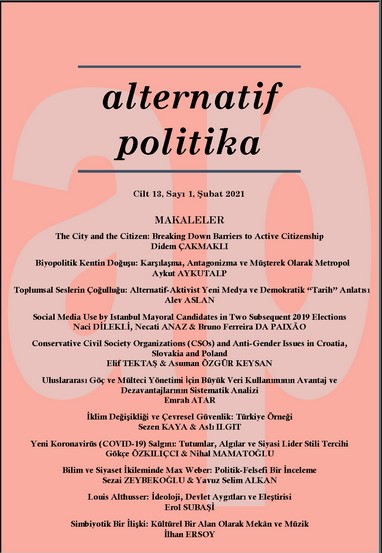BİYOPOLİTİK KENTİN DOĞUŞU: KARŞILAŞMA, ANTAGONİZMA VE MÜŞTEREK OLARAK METROPOL
THE BIRTH OF BIOPOLITICAL CITY: METROPOLIS AS ENCOUNTERING, ANTAGONISM AND THE COMMON
Author(s): Aykut AykutalpSubject(s): Political Philosophy, Labor relations, Rural and urban sociology, Socio-Economic Research
Published by: Rasim Özgür DÖNMEZ
Keywords: Biopolitical City; Biopolitical Production; The Common; Encounter; Antagonism;
Summary/Abstract: This study examines “the biopolitical city” approach by Hardt and Negri. According to Hardt and Negri, a series of changes in capitalist production have led to the overlapping of biopolitical production and wealth production along with the boundaries of urban space. Since biopolitical production is based on the production of immaterial goods, the city has become a place where material and immaterial commons are produced. In this respect, biopolitical production not only allows the birth of the biopolitical city as a new socio-spatial area, but also enables the reproduction of biopolitical production. This change is seen as the end of industrial city and the emergence of the biopolitical city. In this regard, biopolitical city should be considered along with a series of new features. The city is transformed into a space where the commons are produced, coincidental encounters take place, political sensations and organizations occur. The idea that city should be seen as a common space also brings into question who should have a say on this space. Within the context of the Hardt’s and Negri’s thoughts, the study will tackle biopolitics as well as the changing functions of city as the space of production, encounter and organization; it will also focus on the problem of who will shape the city since the city is a common space where material and immaterial networks are collectively organized.
Journal: Alternatif Politika
- Issue Year: 13/2021
- Issue No: 1
- Page Range: 29-50
- Page Count: 22
- Language: Turkish

